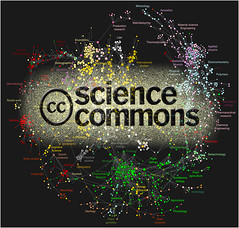
My final repost today (edited) from the Open Knowledge Foundation blog. It’s a little old, originally posted on the 16th of April, 2013 but I think it definitely deserves to be here on my blog as a record of my activities… So… it’s over.

My final repost today (edited) from the Open Knowledge Foundation blog. It’s a little old, originally posted on the 16th of April, 2013 but I think it definitely deserves to be here on my blog as a record of my activities… So… it’s over.
Over at Dynamic Ecology this morning Jeremy Fox has a post giving advice on how to decide where to submit a paper. It’s the same basic advice that I received when I started grad school almost 15 years ago and as a result I don’t think it considers some rather significant changes that have happened in academic publishing over the last decade and a half. So, I thought it would be constructive for folks to see an alternative viewpoint.
ESA has just announced that it has changed its policy on preprints and will now allow articles that have been posted on major preprint servers, like arXiv, to be considered for publication in its journals. I am very excited about this change for two reasons. First, as nicely laid out in INNGE blog post by Philippe Desjardins-Proulx*, there are many positive benefits to science of the preprint culture.
UPDATE: If you’re looking for publicly available grants go check out our new Open Grants website at https://www.ogrants.org/. It has way more grants and is searchable so that you can quickly find the grants most useful to you. Recently a bunch of folks in the biological sciences have started sharing their grant proposals openly.
As I announced on Twitter about a week ago, I am now making all of my grant proposals open access. To start with I’m doing this for all of my sole-PI proposals, because I don’t have to convince my collaborators to participate in this rather aggressively open style of science. At the moment this includes three funded proposals: my NSF Postdoctoral Fellowship proposal, an associated Research Starter Grant proposal, and my NSF CAREER award.
Latest stop on the GigaScience magical mystery conference tour is Science Online London, and this year they have tried to make the format more interactive by organizing several interactive workshops and breakout sessions, including one on blogging that this is posting is a product of. One of the main themes running through the meeting has of course been open science (especially in the great keynote by Michael Nielson), and open-data
I would like to know what you think of a grant proposal I plan to submit to the UK Natural Environment Research Council at the end of the month.
Michael Nielsen asked me to answer some questions about practical approaches to Open Science. You can see my answers up on his blog.

Image by dullhunk via Flickr One of the great things about being invited to speak that people don’t often emphasise is that it gives you space and time to hear other people speak.
Next Tuesday I’m giving a talk at the Institute for Science Ethics and Innovation in Manchester. This is a departure for me in terms of talk subjects, in as much as it is much more to do with policy and politics. I have struggled quite a bit with it so this is an effort to work it out on “paper”. Warning, it’s rather long.